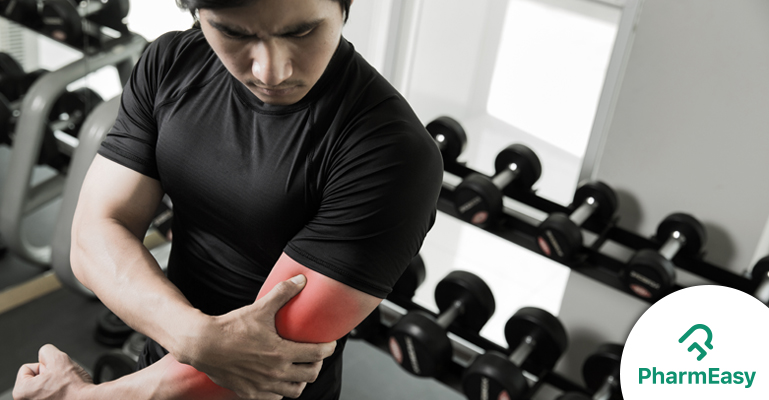Signs And Symptoms Of Vitamin E Deficiency You must Know To Address It!
By Dr. Nikita Toshi +2 more

Get insightful and
helpful tips to treat
your symptoms for FREE



Download PharmEasy App




Register to Avail the Offer
Send OTPBy continuing, you agree with our Privacy Policy and Terms and Conditions
By Dr. Nikita Toshi +2 more
Vitamin E is a fat-soluble vitamin that is loaded with antioxidant properties and aids in keeping our immunity system up and running! Needless to say, since it is fat-soluble, it needs an adequate quantity of fat so that our bloodstream appropriately absorbs it.
Typically stored in the liver, it is generally rare to face a deficiency of this vitamin. And thankfully, since it occurs naturally in a wide range of food items, its deficiency can easily and quickly be corrected.

So, if you happen to experience one of the below-mentioned symptoms, it’s advisable that you conduct a medical expert and get your vitamin E levels checked.
Table of Contents
One of the primary reasons for vitamin E deficiency is in our genes. Many times, this deficiency is passed on from the forefathers. Thus, if there is a history of vitamin E deficiency in the family, then it is of utmost importance to keep a regular eye on the vitamin E levels and not allow them to fall below the prescribed numbers.
In many situations, a vitamin E deficiency may crop up due to medical conditions such as:
Many times, premature babies also experience this deficiency because their immature digestive track cannot manage fat and vitamin E absorption.
Though Vit E deficiency is not common, those with liver diseases or malabsorption syndromes should be mindful of it. Long term Vit E deficiency leads to irreversible neurological damage.
Dr. M.G. Kartheeka, MBBS, MD
While many doctors prescribe supplements, they can cause complications in some cases. Thus, it is highly advisable to derive this vital vitamin by incorporating vitamin E enriched food items in our everyday diet.
Vitamin E is found in abundance in a wide variety of foods such as:
Role of vitamin E is very critical in the body to relieve leg cramps, helpful in the glowing of the skin, protection of muscles from damage due to exercise, and as an anti-inflammatory agent in the body. Supplementation with vitamin E is commonly prescribed In the form of capsules for regular consumption.
Dr. Ashish Bajaj, M.B.B.S., M.D.
One can also consult their doctor for vitamin E supplements. Although, vitamin E contents in supplements are not regulated and thus it is better to get your vitamin E content from natural products.
While it is important to consume vitamin E, it is also extremely essential to keep a tab on excess consumption. Excessive vitamin E may cause:
The amount of vitamin E that we need to consume depends on our age. The recommended amount suggested is as follows:
While the body needs a sufficient amount of vitamin E, a surplus amount is never good. An individual must not take too many supplements of vitamins A, D, E, and K. Excessive levels of vitamin E in the body may cause abnormal bleeding, diarrhoea, muscle aches, and vomiting. The bleeding could increase the risk of a stroke and early death. Surplus vitamin E can also interact with blood thinners and chemotherapy medications and have adverse effects.
It is always better to consult your doctor regarding the dosage of supplements of vitamin E you are planning on including in your diet. Do not exceed the recommended dosage of the supplements unless instructed so by a medical expert.
Disclaimer: The information provided here is for educational/awareness purposes only and is not intended to be a substitute for medical treatment by a healthcare professional and should not be relied upon to diagnose or treat any medical condition. The reader should consult a registered medical practitioner to determine the appropriateness of the information and before consuming any medication. PharmEasy does not provide any guarantee or warranty (express or implied) regarding the accuracy, adequacy, completeness, legality, reliability or usefulness of the information; and disclaims any liability arising thereof.
Links and product recommendations in the information provided here are advertisements of third-party products available on the website. PharmEasy does not make any representation on the accuracy or suitability of such products/services. Advertisements do not influence the editorial decisions or content. The information in this blog is subject to change without notice. The authors and administrators reserve the right to modify, add, or remove content without notification. It is your responsibility to review this disclaimer regularly for any changes.

Leave your comment...
Comments